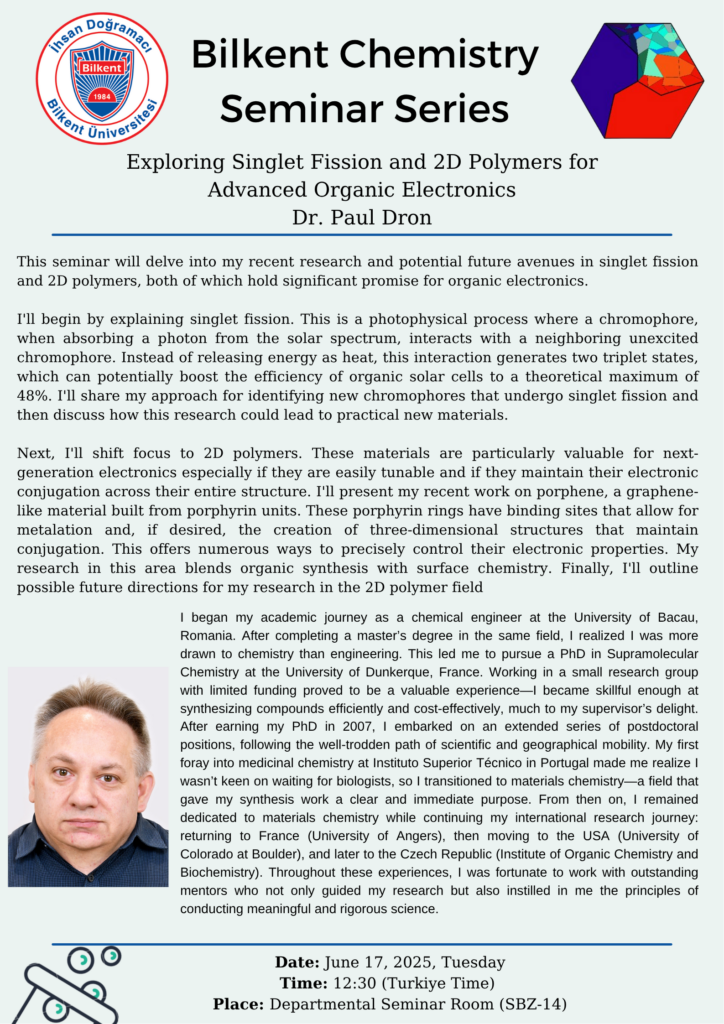Summer ’25 Department Seminars with Dr. Paul Dron
Title: Exploring Singlet Fission and 2D Polymers for Advanced Organic Electronics
Speaker: Dr. Paul Dron
Date: 17/06/2025, Tuesday
Time: 12:30 (Turkiye Time)
Place: Departmental Seminar Room (SBZ-14)

Abstract:
This seminar will delve into my recent research and potential future avenues in singlet fission and 2D polymers, both of which hold significant promise for organic electronics. I’ll begin by explaining singlet fission. This is a photophysical process where a chromophore, when absorbing a photon from the solar spectrum, interacts with a neighboring unexcited chromophore. Instead of releasing energy as heat, this interaction generates two triplet states, which can potentially boost the efficiency of organic solar cells to a theoretical maximum of 48%. I’ll share my approach for identifying new chromophores that undergo singlet fission and then discuss how this research could lead to practical new materials. Next, I’ll shift focus to 2D polymers. These materials are particularly valuable for next-generation electronics especially if they are easily tunable and if they maintain their electronic conjugation across their entire structure. I’ll present my recent work on porphene, a graphene-like material built from porphyrin units. These porphyrin rings have binding sites that allow for metalation and, if desired, the creation of three-dimensional structures that maintain conjugation. This offers numerous ways to precisely control their electronic properties. My research in this area blends organic synthesis with surface chemistry. Finally, I’ll outline possible future directions for my research in the 2D polymer field.
Short Biography of the Speaker:
I began my academic journey as a chemical engineer at the University of Bacau, Romania. After completing a master’s degree in the same field, I realized I was more drawn to chemistry than engineering. This led me to pursue a PhD in Supramolecular Chemistry at the University of Dunkerque, France. Working in a small research group with limited funding proved to be a valuable experience—I became skillful enough at synthesizing compounds efficiently and cost-effectively, much to my supervisor’s delight. After earning my PhD in 2007, I embarked on an extended series of postdoctoral positions, following the well-trodden path of scientific and geographical mobility. My first foray into medicinal chemistry at Instituto Superior Técnico in Portugal made me realize I wasn’t keen on waiting for biologists, so I transitioned to materials chemistry—a field that gave my synthesis work a clear and immediate purpose. From then on, I remained dedicated to materials chemistry while continuing my international research journey: returning to France (University of Angers), then moving to the USA (University of Colorado at Boulder), and later to the Czech Republic (Institute of Organic Chemistry and Biochemistry). Throughout these experiences, I was fortunate to work with outstanding mentors who not only guided my research but also instilled in me the principles of conducting meaningful and rigorous science.